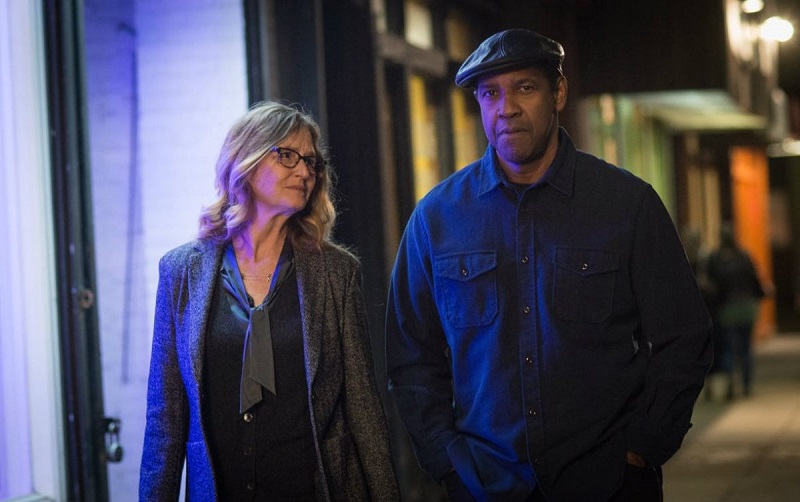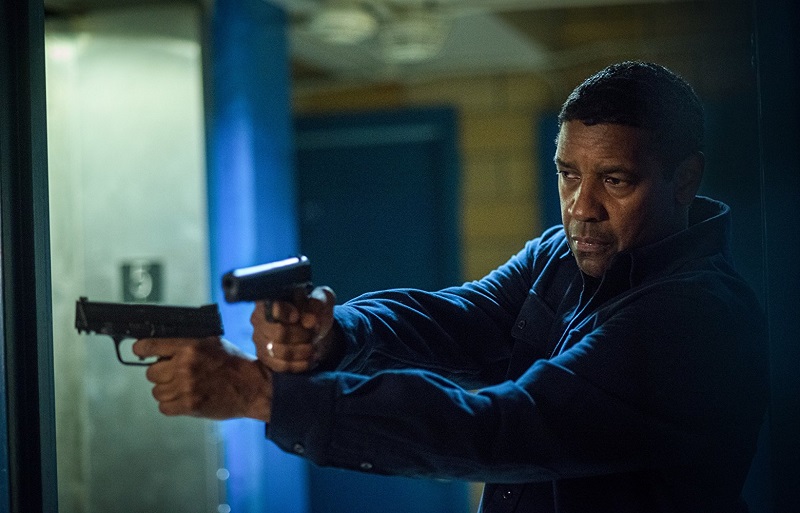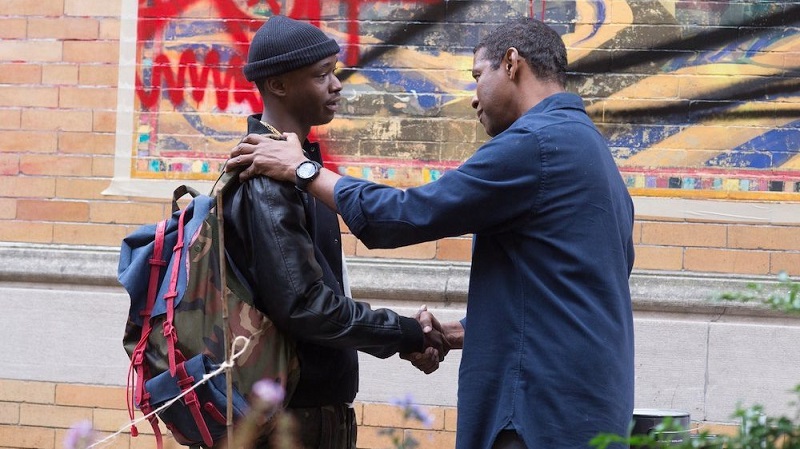Denzel Washington has never done a sequel until The Equalizer 2. Think about that for a moment. The superstar, Oscar winning actor, has had a decorated career that spans four decades, and not once did he feel the need to reprise a role that he had inhabited prior. Was a follow-up to The Equalizer the one that required a first this far into his resume?
The 2014 hit that featured the triumphant talent tandem of Washington and director Antoine Fuqua was itself a reboot/reimagining of the 80s television mainstay. The story follows a former special ops soldier, Robert McCall, who finds himself righting wrongs for folks who don’t have the means or expertise to achieve justice on their own. Cannot think of anyone who would have been a better choice to bring McCall into a new century than Washington. With the beloved thespian’s shorthand with the helmer—they blew us away with the 2001 stunner Training Day and the western remake The Magnificent Seven—the duo once again showed that their pairing is pitch perfect.
The first film also introduced us to the world that McCall inhabits. It is one that involves cherishing a series of classic books, living an anonymous life amongst the hustle of bustle of Boston and enjoying the company of one of his few friends and former colleagues, Susan Plummer (Oscar winner Melissa Leo). She still works for “the agency.” Plummer and her longtime friendship with McCall is integral to the tone, plot and laser sharp focus of The Equalizer 2.
Sure, the man they call The Equalizer has always been about extoling his brand of justice that has revenge at its root and semantically, that is not far off from the neighborhood known as vigilante. The Equalizer 2 is firmly a vigilante extoling vengeance tale of the highest order. McCall is never one who should be crossed, one, and two, not an individual who you would want to be on their bad side due to making it personal. They say that hell hath no fury like a woman scorned. That sentiment could easily also apply to McCall when some unsavory types assassinate his BFF Plummer.
Whereas the first film was about bringing justice to those who could never dream of achieving such karmic bliss, the second film sits firmly in a subgenre of storytelling that includes many legendary titles, such as Charles Bronson’s Death Wish. If witnessing Washington in the role of bringer of righteousness was a delight with The Equalizer, then going after people who so mercilessly took out someone he cares deeply about is nothing short of pure joy for the audience. Sad to put it this way, but his emotional pain is our cinematic pleasure.
The smartest thing Fuqua did in tackling his own first time in sequel-land was tapping the first film’s scribe, Richard Wenk (The Mechanic, 16 Blocks). Not only does he firmly have a grasp on the tone and tenor of this character and this world, but he too has a shorthand with the director (he penned The Magnificent Seven for Fuqua as well). Due to the nature of the story itself, Wenk is allowed to fully let his McCall go to the nth degree in terms of combining the character’s skill set, sentiment, and emotional baggage that allows us to go deeper into layers of a McCall’s life that was only teased in the first film. And with an actor of Washington’s pedigree, that is delivered to the viewer with an aplomb and power that few working today can achieve. It’s a masterful creative combination of actor-director-writer that has us eager to see what the talented trio work on next.
It is easy to see, after witnessing The Equalizer 2, why Washington finally decided to go back to a character played prior. It is rare that a sequel delivers the kind of challenge an actor seeks when diving into any role. What is so mesmerizing about Washington as McCall is how subtle and sensitive he appears on the outside as he does life’s mundane moments—such as reading a book or drinking coffee. Yet on the inside, we all know that he is about as explosive as one can be without actually catching fire. When he does swing into action, all those character traits are on display and only an actor of Washington’s caliber can execute mind-blowing action sequences with the finely fierce finesse that accompanies everything else McCall does day-to-day.
Washington also does something that few actors manage to do in the action milieu. A bevy of brilliant actors can learn action choreography and execute it to perfection. But few manage to brilliantly balance the quieter moments that feed the character’s well roundedness that enhances and emotional audience connection. We would be remiss if the terrifically touching connection between McCall and a teenager from his building, Miles Whittaker (effervescently played by Ashton Sanders) wasn’t saluted. It shines a spotlight on Washington’s character that makes him quite paternal and is immensely inspiring.
Fuqua became one of our favorite directors, whose name alone got us into the theater, with his work on the Oscar winning Training Day. There is something about his firm command of his gifts and how he uses those talents to tell a story that makes a Fuqua film definitively his. Not wanting to give anything away—plot wise—but there is something about the last 20 to 30 minutes of the film that borrow from various movie genres out there, including horror. The way Fuqua utilizes his camera (through his cinematographer Oliver Wood) crafts a series of scenes that are utterly electric and pulsating with tension. It is a marvel to sit through, if you can without biting all your nails off!
Grade: B




